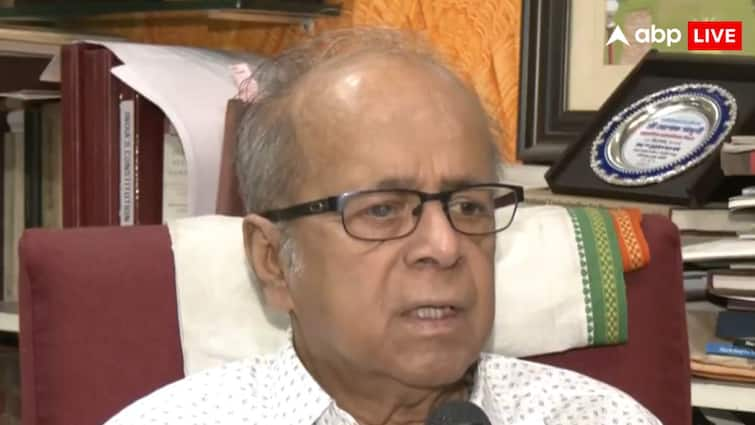Nishikant Dubey s controversial statement on Supreme Court former judge Ashok Kumar Ganguly says nobody is above law | निशिकांत दुबे के बयान पर सुप्रीम कोर्ट के पूर्व जज ने दी नसीहत, बोले
Supreme Court former Judge: A new constitutional debate has erupted in the country regarding the Waqf Amendment Act 2025. The validity of this law has been challenged in the Supreme Court and during the hearing on it, BJP MP Nishikant Dubey made a controversial statement about Chief Justice Sanjeev Khanna. Dubey said that “The Supreme Court is responsible for inciting religious civil war in the country.”
To this, former Supreme Court Judge Ashok Kumar Ganguly reacted sharply, saying, “No one is above the law. It is the responsibility of the Supreme Court to protect the basic spirit of the Constitution.”
What did the former judge of the Supreme Court say?
The former judge of the Supreme Court said, “Our country is secular. It is the job of the Supreme Court to protect the basic spirit of the Constitution, that is why the Supreme Court has put some questions before the government regarding the Waqf Act. After this, the government has come on the backfoot and he said that it will not implement some sections of the Act. According to Article 53 of the Constitution, the President should work according to the constitution, if the President should work, if the Supreme Court can give a democracy in it, it is not wrong. It is strong. It is unfortunate to understand that no one is above the law.
#Watch Kolkata, West Bengal: on BJP mp nishikant dubey’s statement on the Supreme Court, Former Supreme Court Judge Ashok Kumar Ganguly Says, “Oor CONTRY IS A Secular One … The Tasked Top Safeguard the essence of our constitution, which is why, the sc has put some… pic.twitter.com/vbedlpgvy0
– ANI (@ani) April 19, 2025
What did BJP leader Nishikant Dubey say?
BJP MP Nishikant Dubey said that if the court makes a law, then Parliament should be closed. He said, “Chief Justice of India Sanjeev Khanna is responsible for all the civil wars happening in this country.” Citing Article 141 and Article 368, he argued that Article 368 gives Parliament the right to enact laws. Under Article 141, the decisions of the Supreme Court are binding on all courts, but this does not mean that the Supreme Court can enact a law.
Questions raised on appointments also
The BJP MP questioned, “When it comes to Ram temple, Gyanvapi or Krishna Janmabhoomi, the Supreme Court asks for paper, but does not do this for Waqf properties?” Dubey also asked how the Supreme Court can direct the President to decide on the bills.
The legal and moral debate between the Supreme Court and Parliament over the Waqf Act has once again brought the roles of India’s democracy and institutions to the center of debate. The former judge of the Supreme Court has clearly stated that the constitution is supreme and no person, institution or position, no matter how high it is, cannot be above the law.
Also read: ‘Muslims came out, Muslims are eating sticks, put President’s rule’, Maulana Sajid Rashidi’s statement on Waqf Act
Share this content:













Post Comment